Mandala Khurd (Phalodi), Rajasthan
Every morning when Hardev Paliwal leaves his home, he makes it a point to carry his jhola. The cloth bag is filled with books that he lends to children and villagers he meets on his way to school, his alma mater, where he now teaches.
Paliwal’s Jhola Pustakalay is a big hit among the inhabitants of Mandala Khurd village in Phalodi district, Rajasthan, where he is posted as a teacher at the Government Higher Secondary School.
“I have 200 books and essays on great people of the world, and every now and then I lend them to the village inhabitants through my Jhola Pustakalay,” he said.
Jhola Pustakalay isn’t the only initiative the 32-year-old teacher has launched to promote education in rural areas. In the past 11 years of his teaching experience, Paliwal has worked tirelessly to promote girls’ education.
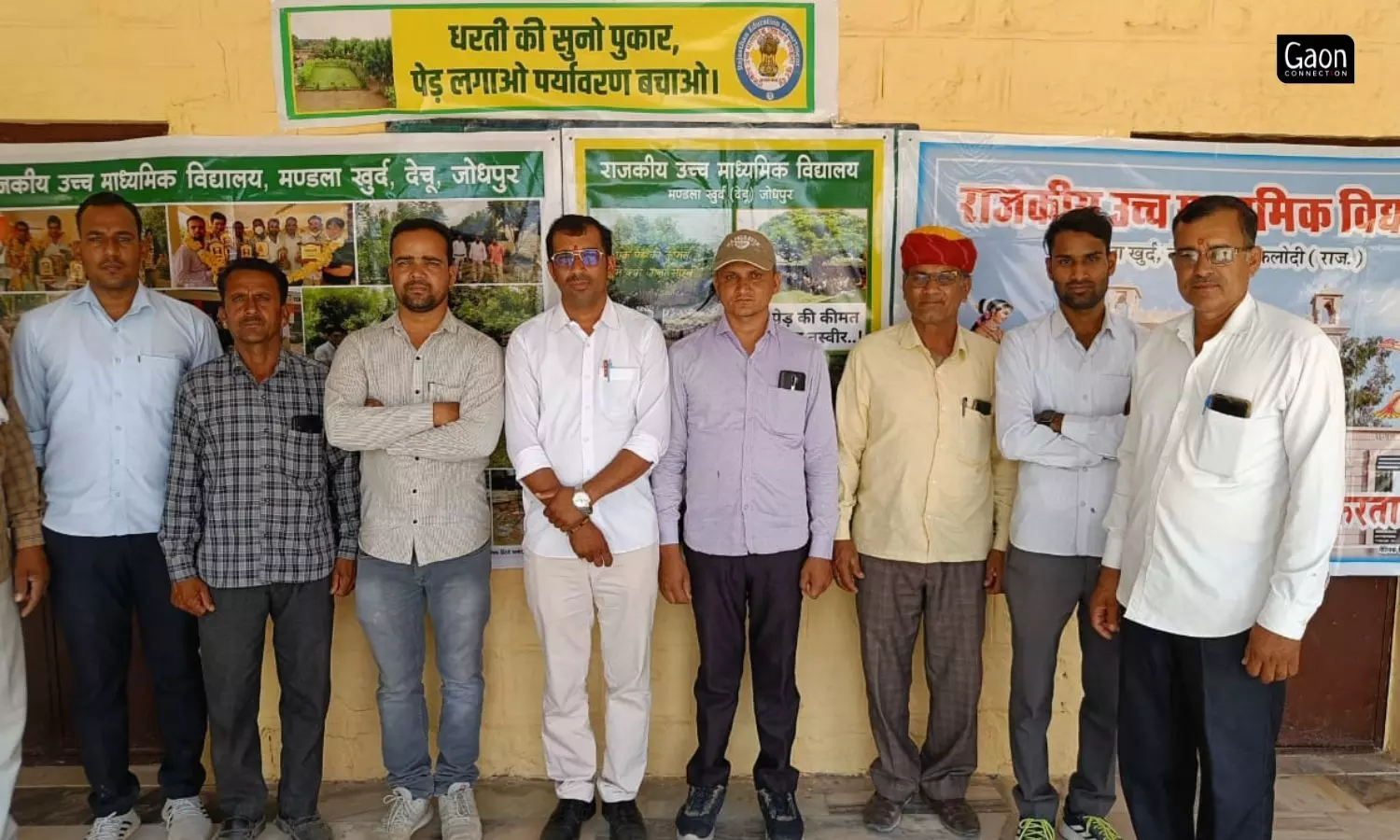
The teacher’s Jhola Pustakalay is a big hit among the inhabitants of Mandala Khurd village in Phalodi district, Rajasthan.
One of the first things he did after he became a teacher and joined the school in Mandala Khurd village in 2012 was to increase the enrollment in the school.
“When I joined, there were 60 girls and 32 boys in the school. Today the school has 425 students out of which 70 per cent are girls,” Paliwal told Gaon Connection. His aim, he said, was to ensure more girls join the school.
There are no middle or high schools in or near the village and because of this the girls invariably discontinued studying beyond the primary level. “My earliest endeavour as a teacher here was to upgrade the school to class 10, which, at that time, was only an upper primary school, till class five. And, with the efforts of my entire team, in March 2022, we were successful in pulling that off and all government schools in rural Rajasthan were upgraded to class 12,” said the teacher.
Infrastructure improvement
Improving the infrastructure of the school was Paliwal’s next mission. He got the building refurbished, repaired and repainted, built separate toilets for the girls and made available clean drinking water.
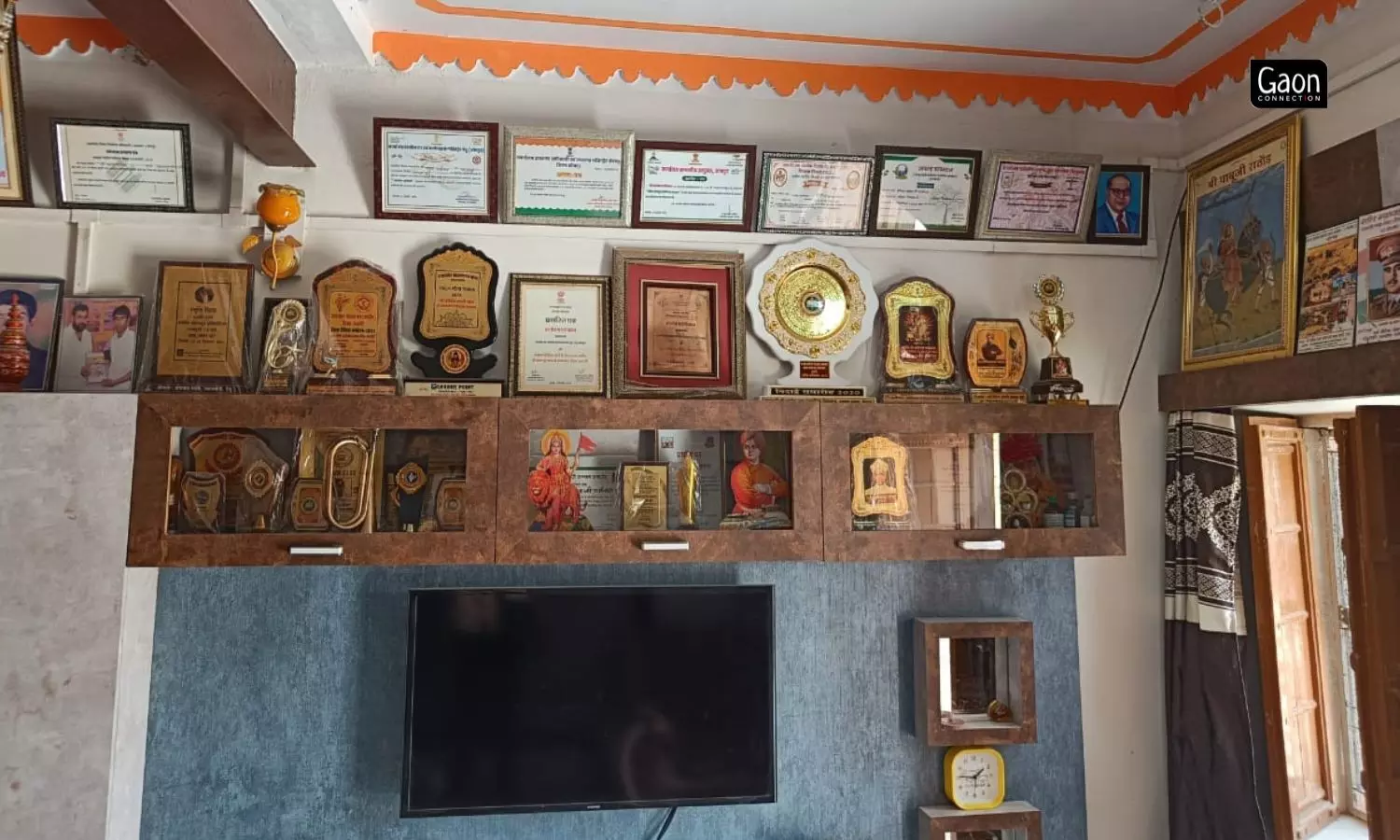
Haridev Paliwal was awarded a state level honour in 2019 for encouraging education for the girl child and working in the sphere of environment conservation.
Paliwal recalled the time when the school had no doors or gates. Stray cattle wandered in and out and grazed on any saplings we had planted.
“In 2019, on Republic Day, during a function at school, I asked the teachers in front of the gathered parents of the students if they were willing to donate a month’s salary towards constructing a gate for the school. They all agreed immediately,” narrated Paliwal.
Also Read: Bridging the education gap for children with special needs in Barmer
The school got its brand new gate at a cost of Rs 311,000, all donated by the staff of the school.
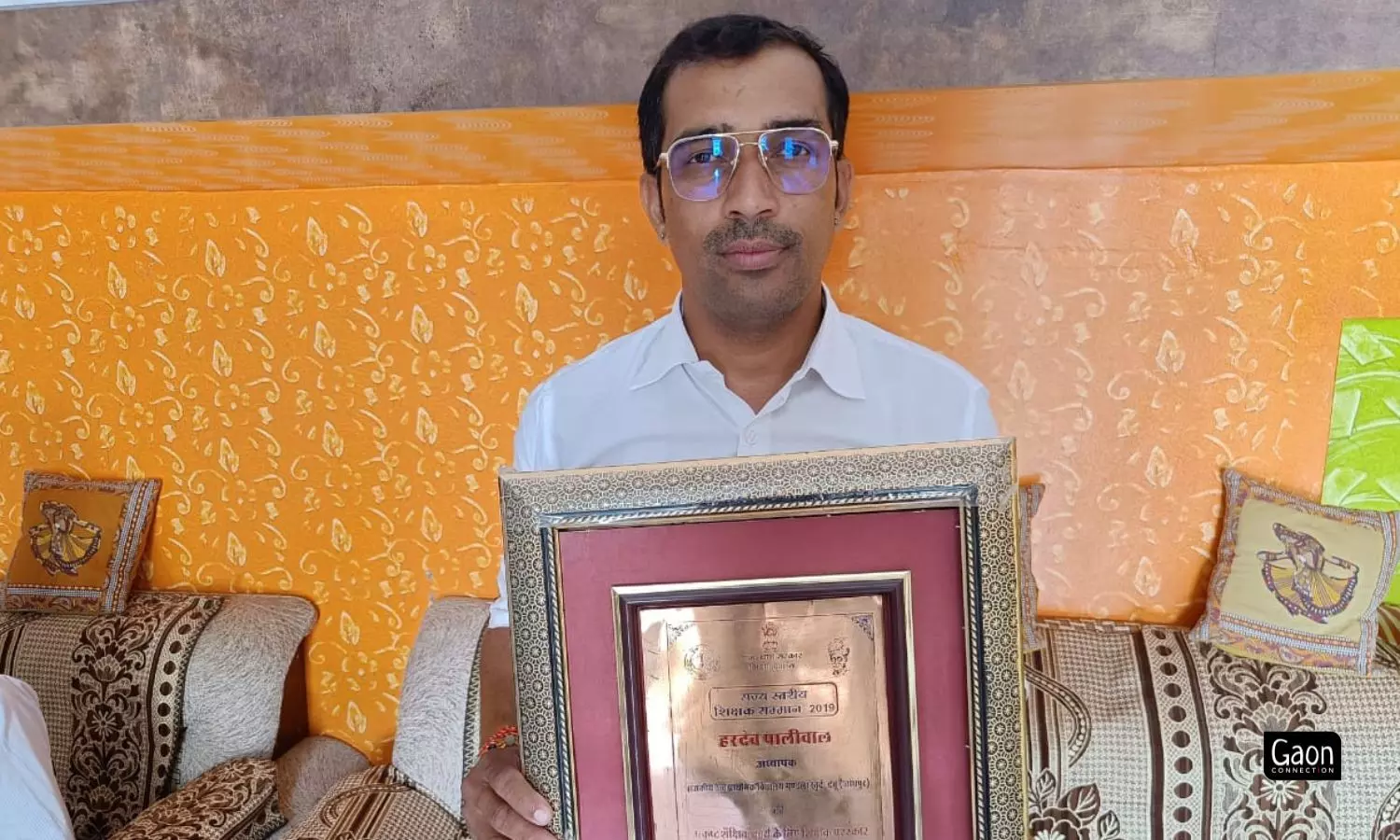
In the past 11 years of his teaching experience, Hardev Paliwal has worked tirelessly to promote girls’ education.
This was the catalyst to get the parents of the students to support them in their endeavours to improve the school, said the teacher. “All of this contributed to the increase in the admissions in the school going up,” he added.
Eco-initiatives
Paliwal is also deeply committed to safeguarding the environment and he has taken several steps to nurture the same care amongst his students, colleagues and the village community.
During the pandemic, with the help of the Amrita Devi Environmental Organisation, over 1,000 saplings were planted in and around the school in an area of 175,000 square feet.
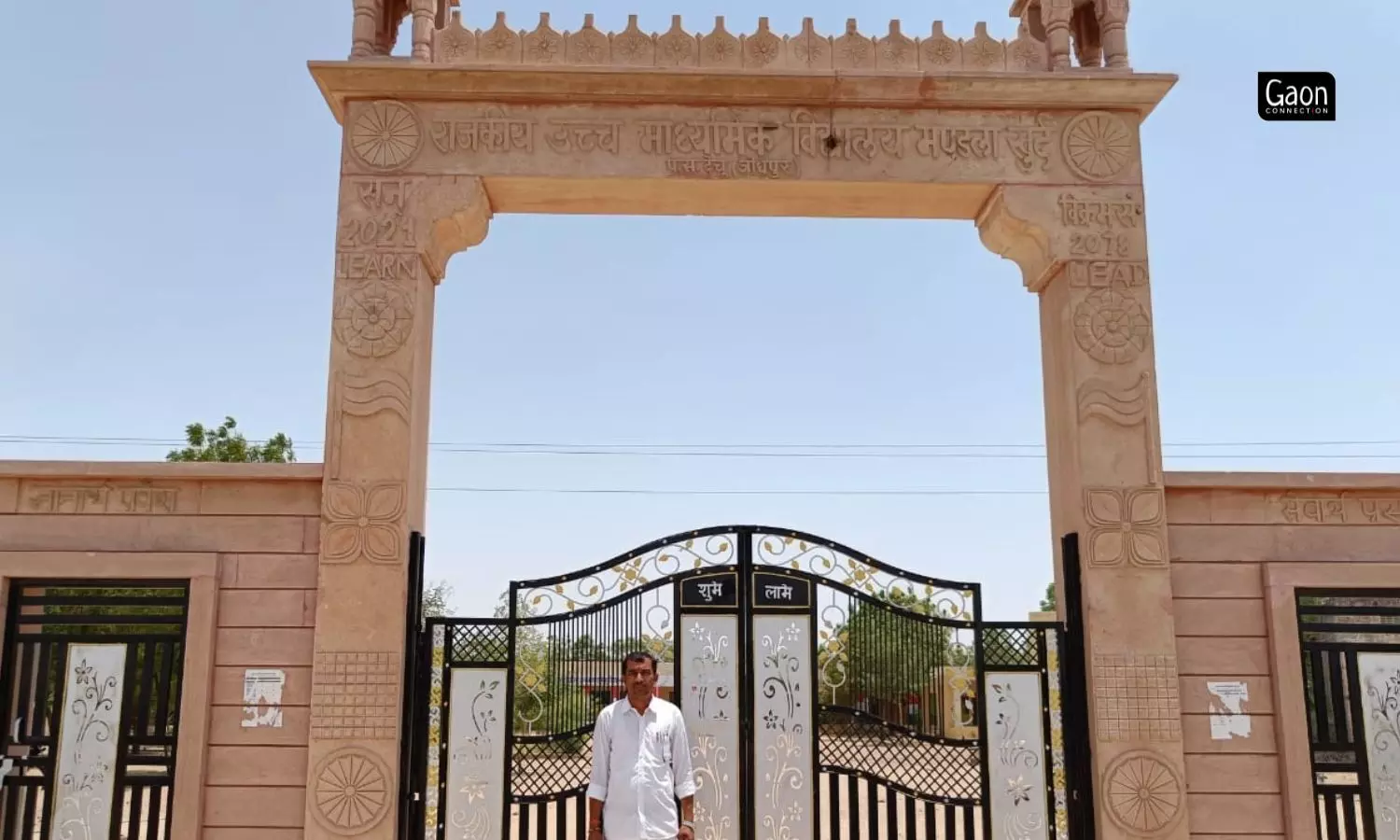
The school got its brand new gate at a cost of Rs 311,000, all donated by the staff of the school.
In 2017-18, with the help of the gram panchayat, Paliwal oversaw the construction of a 50,000 litre tank to ensure the staff and students in the school had clean drinking water throughout the year.
Also Read: A rural teacher roots for Assamese culture while imparting modern education
The school boasts of rainwater harvesting, too. “Rainwater that ran off the roof of the school is harvested. Pipes and troughs have been made that lead the run off into the tank. But, before that a filter cleans the water of any leaves and other debris,” Dinesh Prajapat, a teacher at the school, told Gaon Connection. “Paliwal Sir got three lakh rupees from the panchayat to make the tank,” he added.
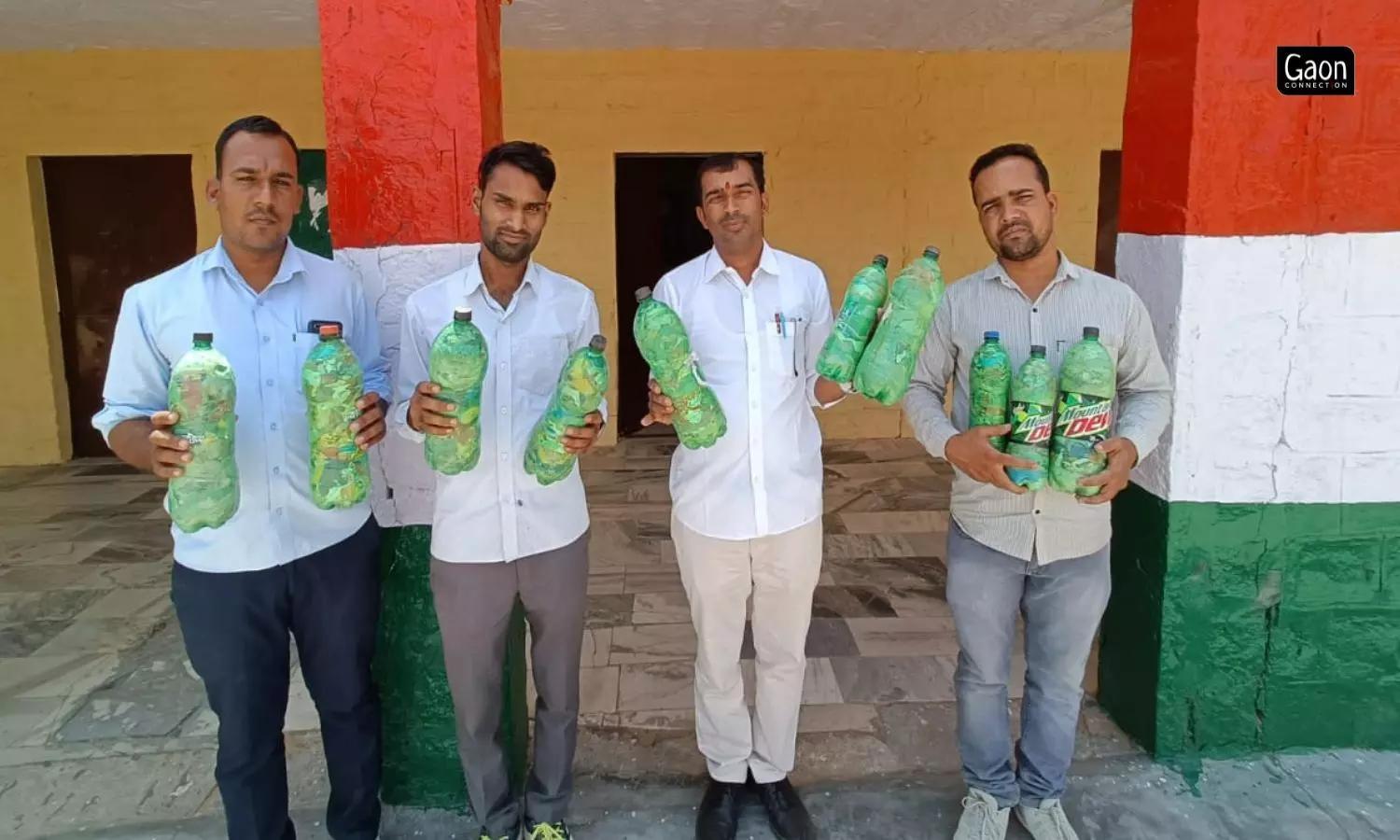
Paliwal is also deeply committed to safeguarding the environment and he has taken several steps to nurture the same care amongst his students, colleagues and the village community.
At present, Paliwal is on a mission to promote eco-bricks that are made using discarded plastic bottles. He has involved his school children in the mission. He gives them empty plastic bottles and asks them to fill the bottles with plastic waste they find in and around their homes and bring them to school.
“The child who brings the most gets a reward and his or her name is announced in the school assembly,” said Paliwal.
Also Read: When peers turn teachers to promote girls’ education
Serving his alma mater
Paliwal has the happy opportunity of becoming a teacher at the same school in which he himself had studied. “That is the reason this school is like family to me and I am very attached to it. And, I had the privilege of becoming a teacher here,” he said.
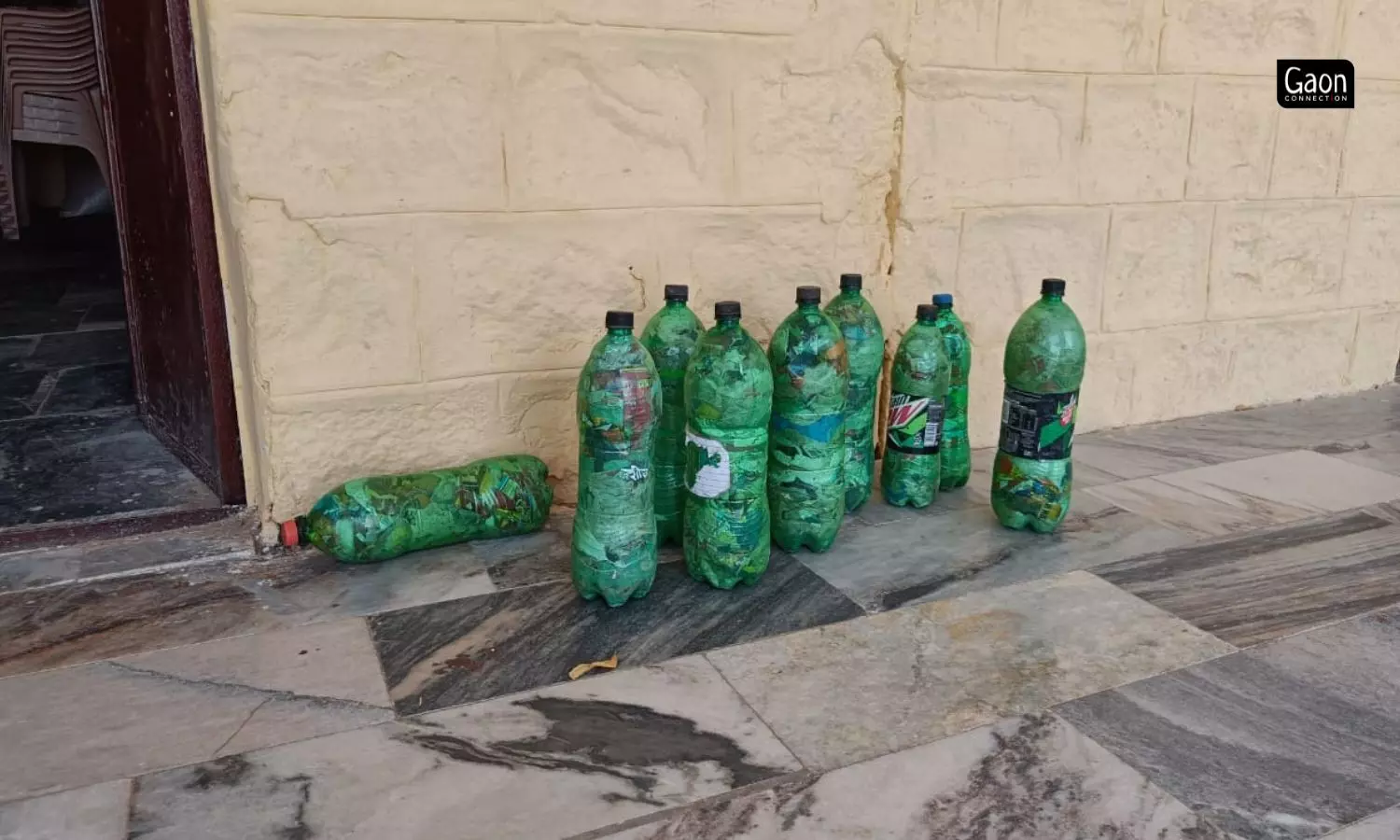
The teacher is on a mission to promote eco-bricks that are made using discarded plastic bottles.
Since he knew the school inside out and had a long association with the school as a student and then as a teacher, it made him well aware about its drawbacks. So, when he joined there as a teacher, he was able to set a few things right, said Paliwal.
He was awarded a state level honour in 2019 for encouraging education for the girl child and working in the sphere of environment conservation, by the chief minister of the state.




















